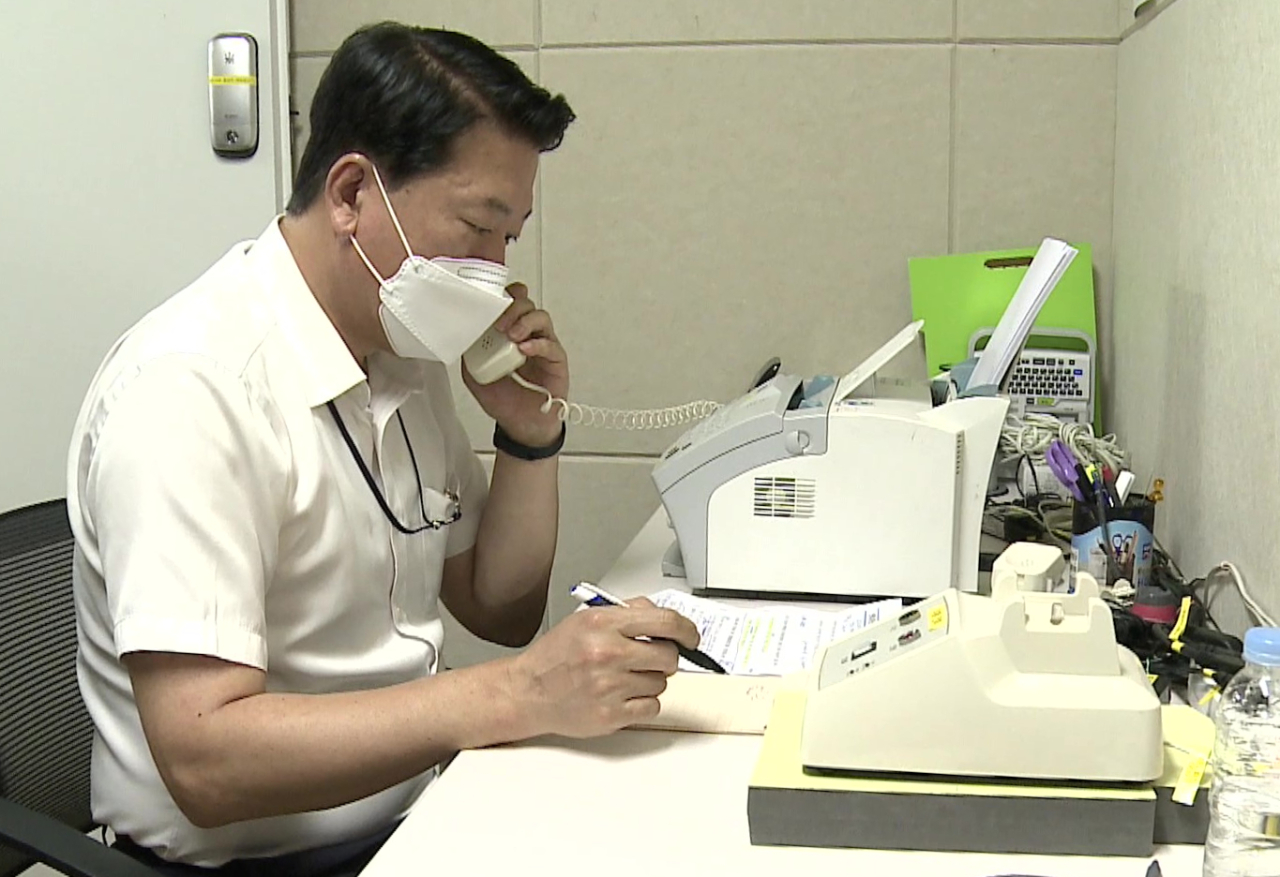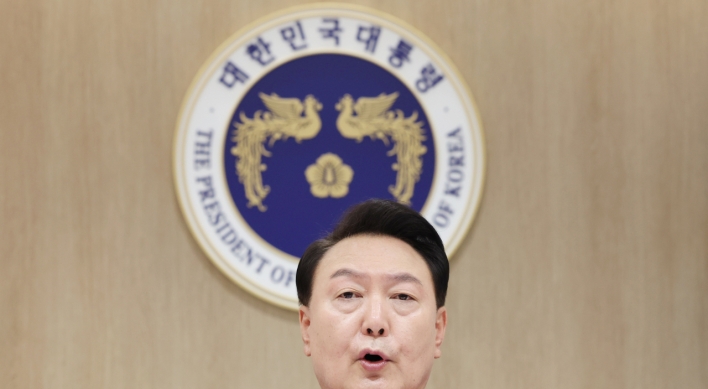Restored hotline with Pyongyang raises hopes for inter-Korean thaw
By Ahn Sung-miPublished : July 27, 2021 - 18:21

South and North Korea restored their severed hotlines on Tuesday after a 13-months hiatus, raising hope that resumed cross-border communications could give way to a thaw in strained inter-Korean ties.
The announcement coincided with a symbolic day, the 68th anniversary of the signing of the armistice in 1953.
The reestablishment comes more than a year since Pyongyang cut off all communication channels with Seoul in June 2020 as relations remained chilled following the collapse of the Hanoi summit in 2019. Ties were further strained after the North blew up a joint liaison office -– which was built to foster better cross-border exchange and communication -- later that month in protest of anti-Pyongyang leaflets sent into the North by defector groups here.
The resumption of hotlines appears to be the most noteworthy exchange between the two Koreas since then, raising the prospect that Pyongyang is ready for engagement after the regime has rebuffed both Washington and Seoul’s diplomatic overtures for months, experts say.
“Restoring the hotlines is a good sign not only that North Korea wants to avoid unintended conflict and escalation but also that Pyongyang is willing to move past the cold shoulder treatment it has given Seoul since the no-deal Hanoi summit and self-imposed pandemic isolation,” said Leif-Eric Easley, professor of international studies at Ewha Womans University.
Lim Eul-chul, a professor at the Institute for Far Eastern Studies at Kyungnam Universities, echoed similar stance that the restoration of the links signaled Kim’s willingness to respond to Seoul’s previous overtures, and out of a need to make some steps to improve soured inter-Korean ties.
“Kim appears to have made a change in his policy stance,” said Lim. “Through improving inter-Korean relations, Kim could be gearing for talks with the US in the future as well.”
Lim added that Pyongyang has probably concluded that it could no longer leave the inter-Korean relations to deteriorate further, as it would not be helpful in the US-North Korea relations going forward.
“Also, maintaining positive relations with Seoul was deemed to be critical, considering South Korea’s presidential election next year and subsequent transition to the next administration,” he said.
Others also note Moon’s unwavering efforts to reinvigorate ties with Pyongyang as well as mediation between US and North Korea had paid off to certain extent.
“When Pyongyang severed the hotlines, it cited defectors sending anti-Pyongyang leaflets across the border as the main reason,” said Cheong Seong-chang, director of the Center for North Korean Studies at the Sejong Institute. “In response, the Korean government, despite backlash from its citizens as well as the international community, enacted a law banning anti-Pyongyang leaflets.”
He added that Pyongyang saw Seoul’s grown influence on Biden administration’s policy toward North Korea that appears to be more “flexible” in its approach, which was shown during the May 21 summit between Biden and Moon.
Washington in May announced that it is pursuing a “calibrated, practical approach that is open to and will explore diplomacy” with Pyongyang, after completing a monthslong policy review to persuade the North to give up its nuclear program.
In a sign of resolving the North Korean nuclear program through dialogue, at the summit Moon and Biden agreed to acknowledge previous agreements between the two Koreas and between the US and the North, including the Singapore accord, which was signed between former President Donald Trump and Kim during their first-ever summit in 2018.
Denuclearization talks have stalled during the Trump administration, despite headline-grabbing summits between Kim and Trump. The Hanoi summit in 2019 collapsed when Trump rejected Kim’s offer of major sanctions relief in exchange for North Korea’s denuclearization.
Since then inter-Korean ties have also remained at a standstill, despite Moon and Kim meeting three times in 2018.
Washington has reached out to Pyongyang since the Biden administration took office early this year, but the reclusive regime has kept mum.
The shift toward Pyongyang’s stance comes as the country faces worsening economic woes following the prolonged pandemic restrictions and international sanctions against the regime.
Some analysts say amid mounting domestic challenges, the North may be compelled to reach out to the South for help, such as for COVID-19 vaccines and other humanitarian assistance.












![[KH Explains] How should Korea adjust its trade defenses against Chinese EVs?](http://res.heraldm.com/phpwas/restmb_idxmake.php?idx=644&simg=/content/image/2024/04/15/20240415050562_0.jpg&u=20240415144419)







